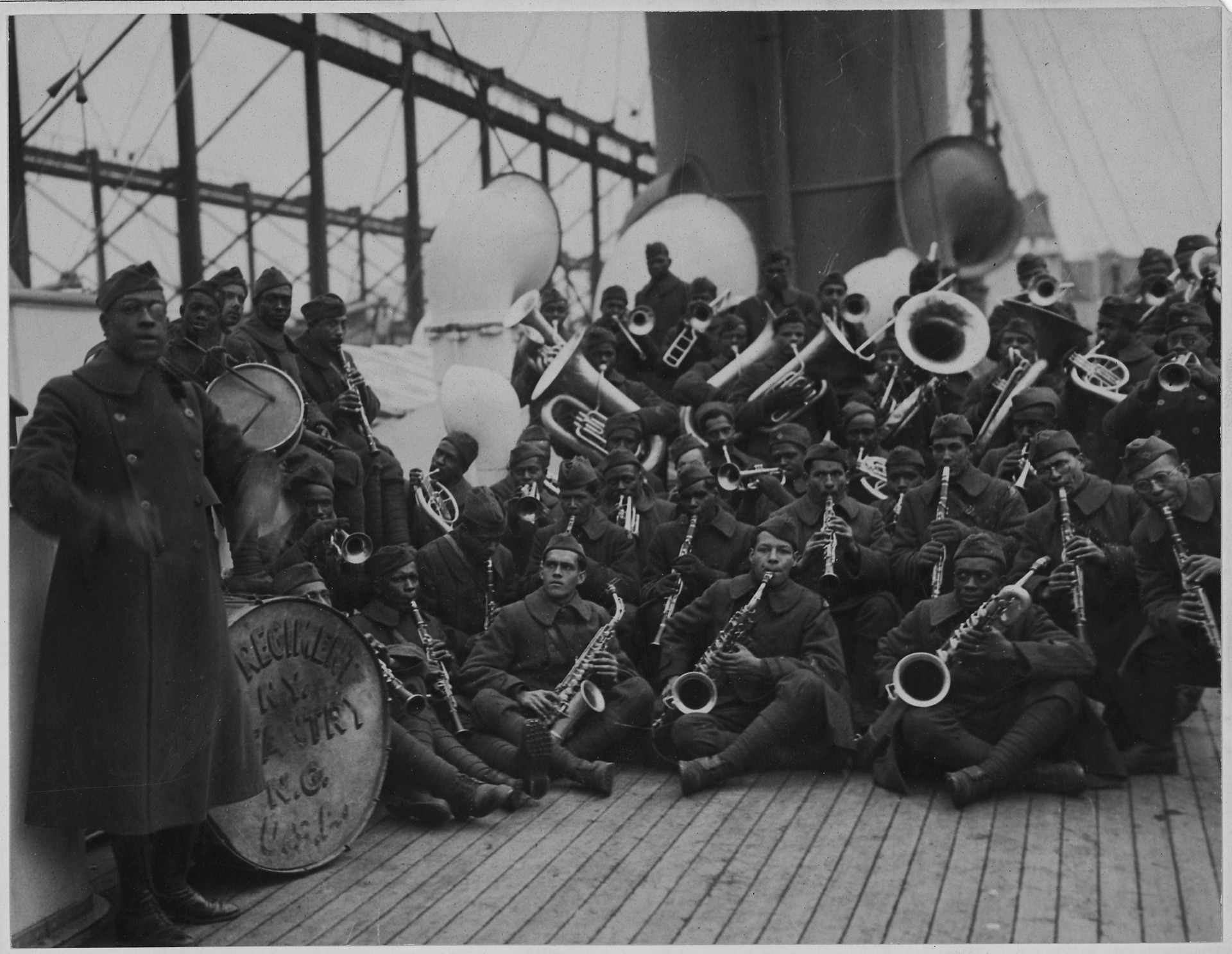NOVEMBER 12, 2019 – Yesterday was “Veteran’s Day,” because Armistice Day was “so far away.”
And yesterday, World War I was on my mind, since my grandfather Nilsson was a veteran of The Great War, which ended on Armistice Day—officially, at the 11th hour of the 11th day of the 11th month—a long, long time ago, 101 years ago, to be exact.
To commemorate the Armistice, I watched World War I: American Legacy, an Amazon Prime documentary about the American experience in The Great War. Over the decades I’ve read many books, watched many films about that conflict, and of course, I remember well grandpa’s stories. But the Amazon Prime documentary exposed elements about which I’d known little or nothing.
Example: the “Harlem Hellfighters,” officially the 369th Infantry Regiment, and originally the 15th New York National Guard Regiment. Their story is riveting.
America in 1917 was officially racist. General Pershing, head of the American Expeditionary Force in France, ordered that African Americans be relegated to KP, unloading dock duty, and other non-combat roles. They weren’t allowed to mingle with (white) French civilians, especially women. But the French, bled dry by three years of fighting, with colonial soldiers of all colors as comrades in arms, had different ideas. The “Harlem Hellfighters” were taken under French command and put in the thick of combat. By the end of the conflict, no American regiment had fought so hard, so courageously, so effectively.
The Hellfighters’ record received its due in the American press, and upon the regiment’s return, its men were cheered by throngs of adulating New Yorkers as the proud soldiers marched up Fifth Avenue.
But there was more to the record of the Harlem Hellfighters . . . jazz.
Led by Jim Reese Europe—yes, “Europe” was his family name—the Harlem Hellfighters band was the best and the brightest of all U.S. Army bands. During and after the war they played to critical acclaim for soldiers and civilians all across France.
It turns out, before the war Jim Europe had been a leading performer, conductor, arranger, composer of black-centric music in New York. In 1912, his symphonic band, the Clef Club Orchestra, had given the first performance of proto-jazz in Carnegie Hall.
* . * . * . * . *
Then there were the volunteer ambulance drivers of the American Field Service—mostly alums of Ivy League schools who went to the front in France long before America entered the war. This segment of the Amazon Prime documentary awakened memories of a family connection on my mother’s side.
My maternal grandfather’s only sibling, Henry, UPenn ’19, was among those volunteers. As a kid, I’d heard he’d been exposed to mustard gas during the war, but no one mentioned more than that. When I was sorting through family papers last year, I encountered newspaper articles about Great Uncle Henry’s bravery. The French honored him with Croix de Guerre for having risked his own life under fire to save the life of a wounded French soldier.
“Hear, hear!” to veterans of yesteryear’s war.
(Remember to subscribe to this blog and receive notifications of new posts by email.)
© 2019 Eric Nilsson
